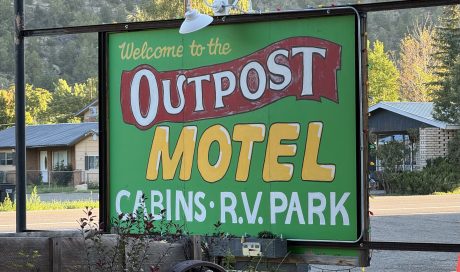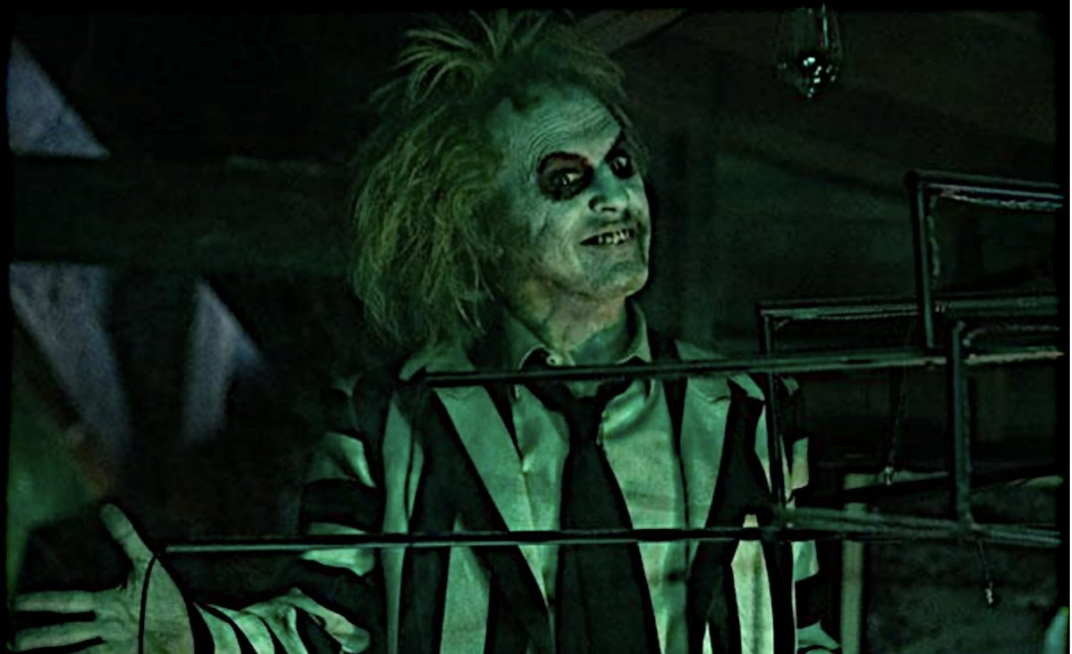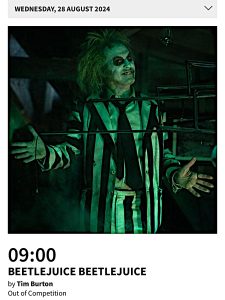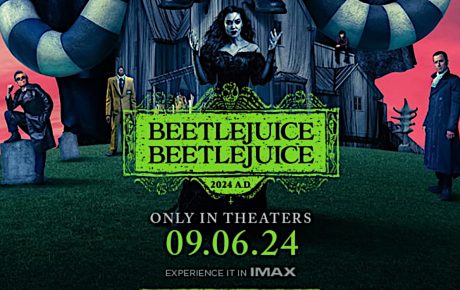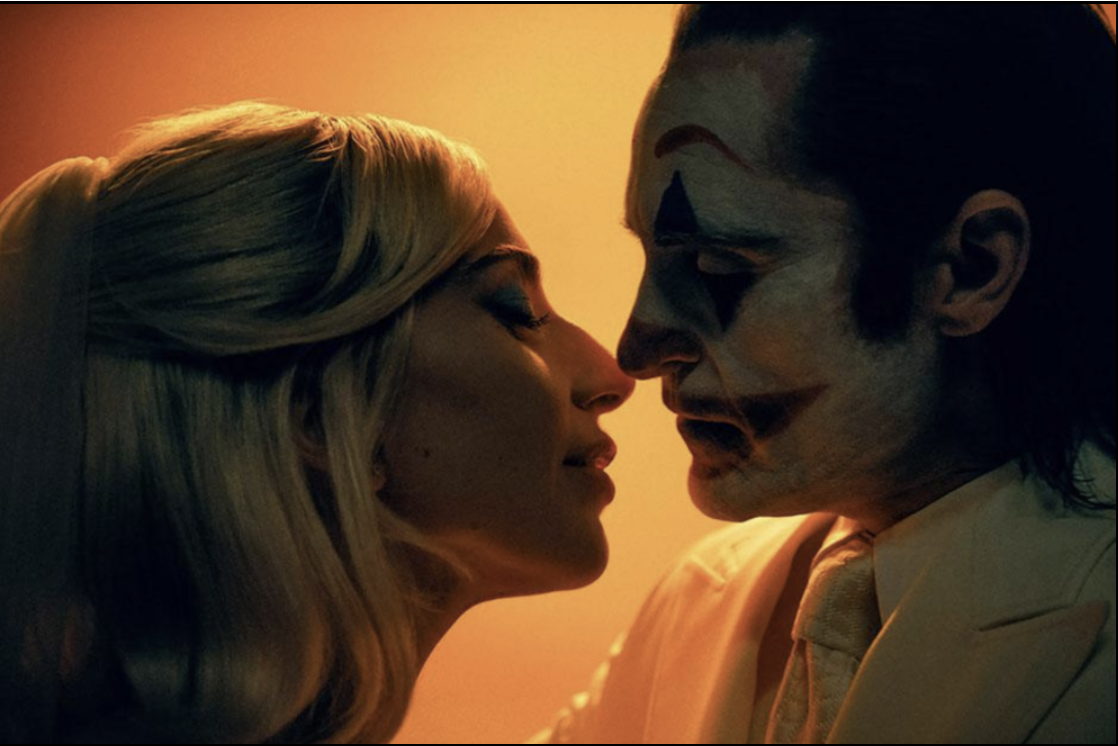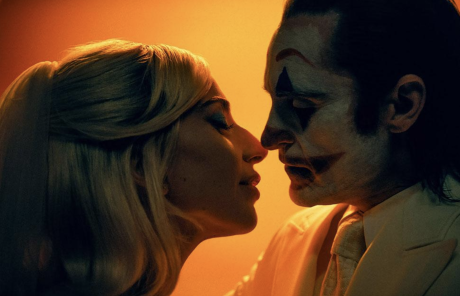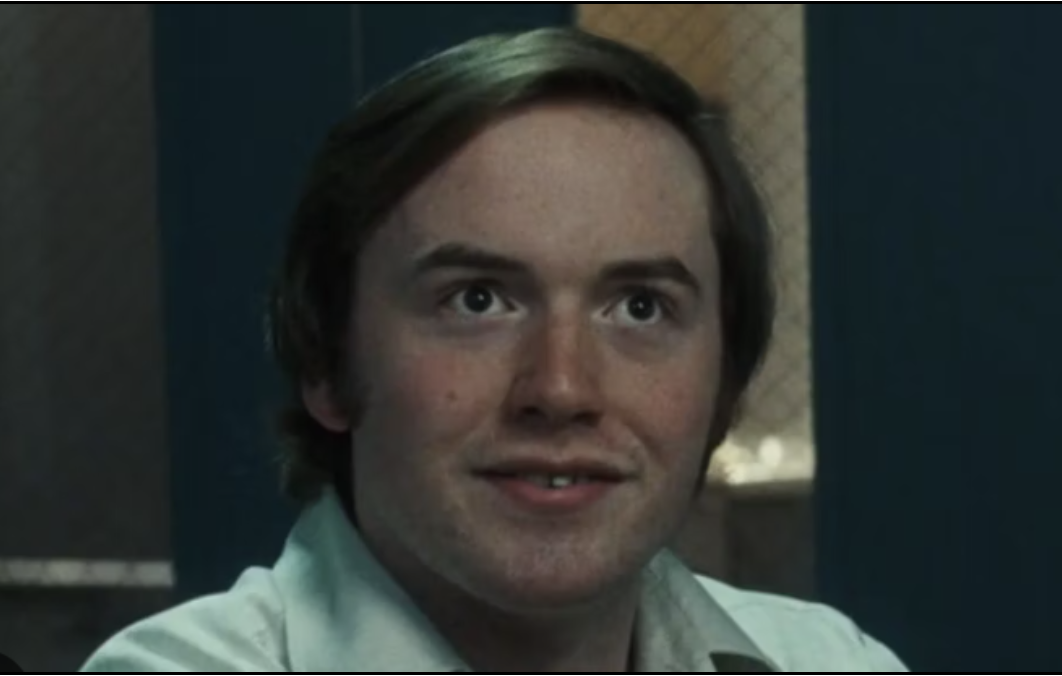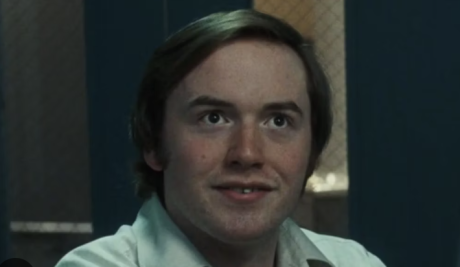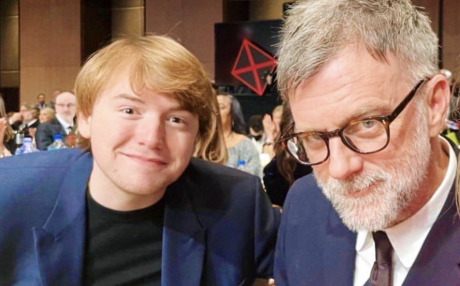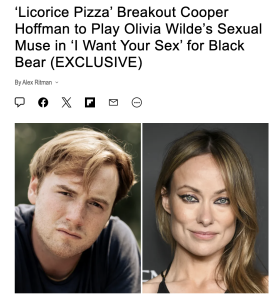Everyone’s here in cool, radiantly sunny Telluride, and there’s nothing much to do at 3:13 pm except plan which screenings to catch at which juncture. And take a nap. And smell that mountain air.
It all starts tomorrow, and over the four-day span most of us will catch not more than 15 or 16 films — it won’t be physically possible to see more. Which is a shame as almost everything scheduled (roughly 35 features) looks good to very good.
I’m hearing and presuming that at least two hot films not listed on the slate (The Apprentice and A Real Pain) will be screened on a TBA sneak basis.
HE has been invited to Roger Durling’s annual La Marmotte birthday celebration gabby-gab, which starts around 8 pm. (Seating is a very delicate matter so I’ll be arriving early.)
HE’s first viewing will be Friday afternoon’s (2:30 pm) secret patron screening at the Werner Herzog (A Real Pain?), followed by a 6 pm Herzog showing of Edward Berger’s Conclave, the Ralph Fiennes Vatican melodrama that’s sure to be an Oscar contender. I could catch Nickel Boys at 8:45 pm but no thanks…sadistic Jim Crow bastards make life hell for reform school lads of color in the ‘60s…later.
One film at a time, one day at a time…
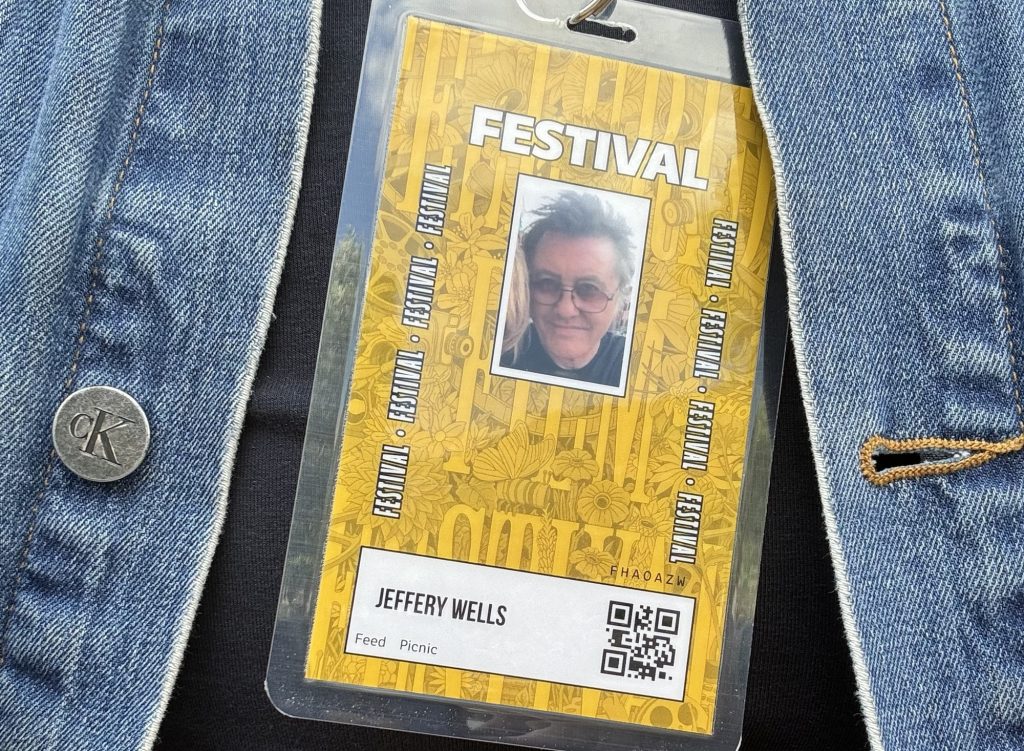

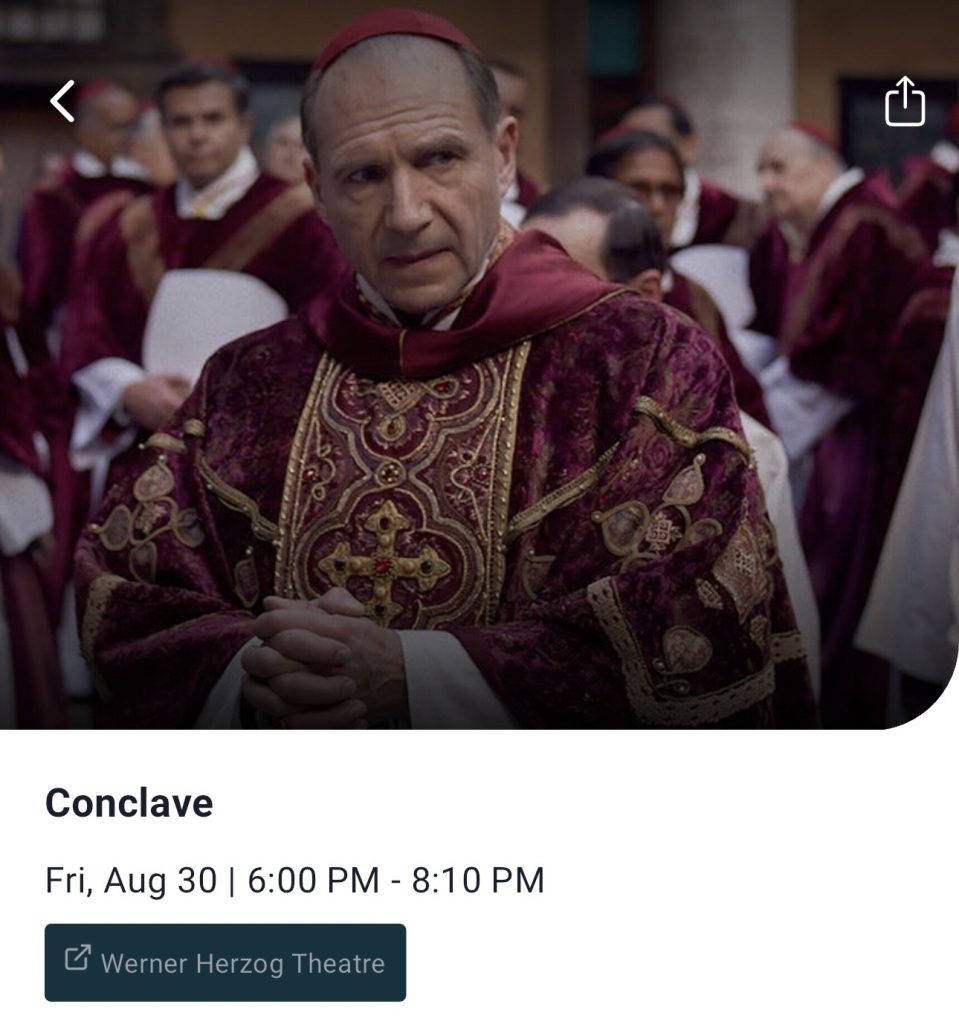


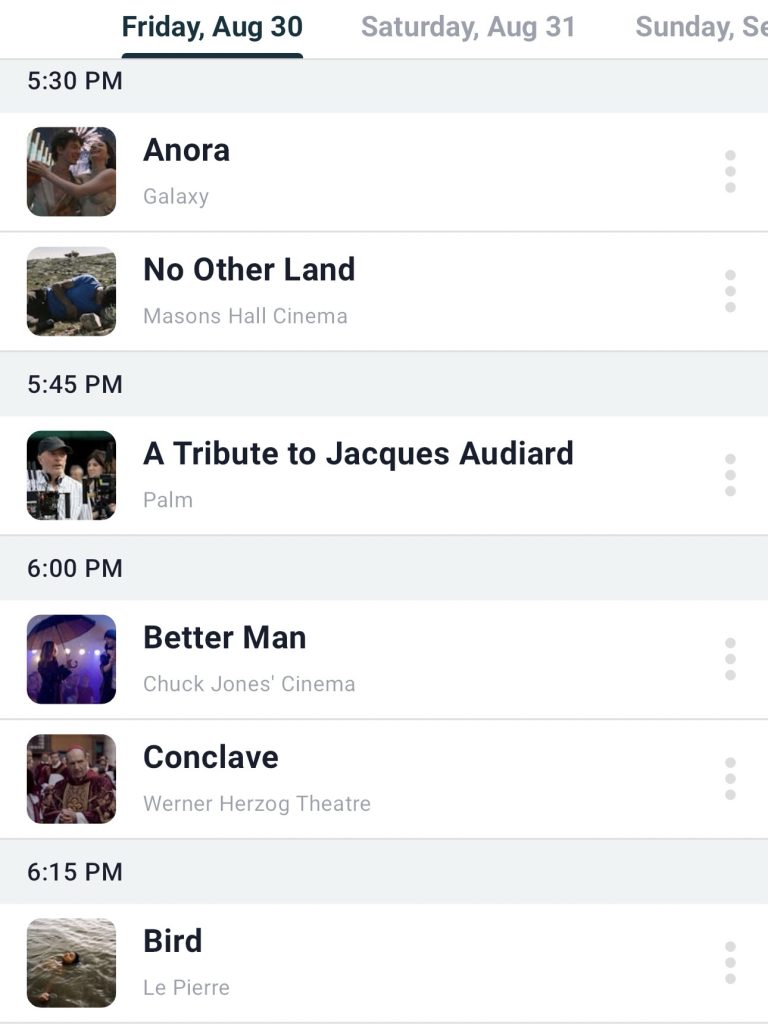


>






